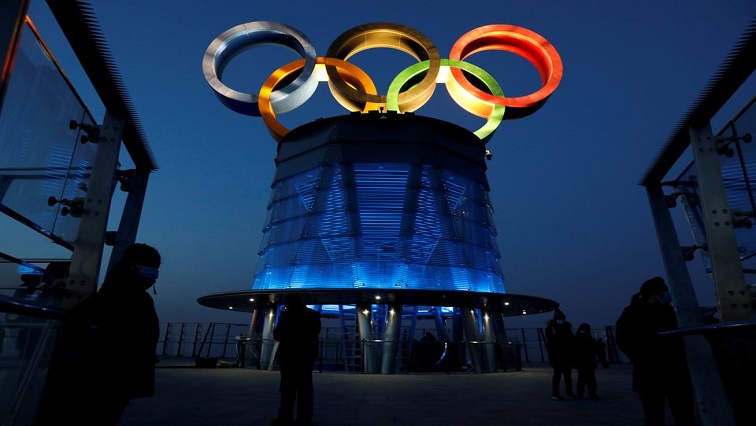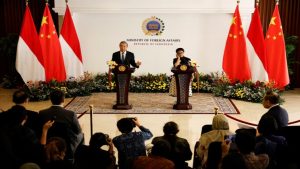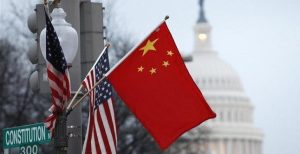Tennis ace and world number one Novak Djokovic’s recent ejection from Australia – albeit a shambolic affair – has dealt a brutal lesson to the anti-vax lobby. Simply put, no vaccination, no entry.
Governments around the world, led mainly by the enlightened across different societies, maintain that vaccination remains a scientifically-proven effective intervention against COVID-19.
Djokovic was deported from Australia on the eve of the annual Australian Open, one of the greatest tennis competitions that mark the beginning of the sporting year. If the lesson learnt from Djokovic’s expulsion from Australia is that “rules are rules”, the same lesson awaits him at the French Open as the year grows older if talk from the ministry of sport in Paris is anything to go by.
The developments drove me to think about what lessons are there to be learnt from the imminent Beijing Winter Olympics, which takes place in a matter of weeks?
In the recent past, the US and other Western allies declared their resolve to boycott the Beijing Olympics by not sending diplomatic delegations to China over claims of human rights excesses that Beijing has steadfastly and vehemently denied.
The international winter multi-sport event will be the second to be held in the middle of the pandemic after last year’s Summer Olympics in Tokyo. That, for me, is the first lesson to be learnt – the triumph of the human spirit and its desire coupled with a determination to live and let live in spite of marauding impediments. To paraphrase, the hosting of the games from 4th February-20th February clearly proves that nothing can, or should, ever be allowed to bring life itself to an abrupt halt.
According to the Beijing Games organising committee, preparations “are very much on track” for the Games to be delivered as planned. They will be swiftly followed by the Paralympic Games, which run from 4-13 March 2022.
How wonderful it is, therefore, that sport is able to bring different people from diverse backgrounds together amid a climate of growing mistrust in the dominant neo-liberal international order?
Sport is an important means of cultural exchange that are essential to foster mutual understanding and appreciation in the effort aimed at promoting peaceful and inclusive international development.
Chinese President Xi Jinping, recently paid a visit to the site of the games to inspect preparations and progress. He toured the main media centre, the National Speed Skating Oval, the athletes’ village, the games-time Operations Command Centre. After the tour President Xi said that “we are fully confident and able to present a brilliant, exceptional and excellent Olympic games to the world”. He added: “We promise to host green, inclusive, open and corruption-free Olympics.”
At the main media centre President Xi appealed to the international and domestic media “to tell the stories of athletes’ competitions, China’s preparations and hosting of the games and Chinese people’s hospitality so that they will present a full, multi-dimensional and panoramic view of the Beijing Games to the world”.
Recently, the Chinese Association of International Understanding hosted in Beijing the second Dialogue on Exchanges and Mutual Learning among Civilizations. Some 260 delegates from over forty countries attended the event in person and scores of others attended online. Participants lauded China’s preparations for the Beijing 2022 Winter Olympics and expressed full confidence that the games will be a success.
Andrew Tienon Mok, a scholar at the Beijing Foreign Studies University, described during the second dialogues indaba how unsurprising it is that China is 100% ready to host the games. From a historical perspective, Mok explained, “China has occupied a very important place economically, culturally and spiritually as one of the great enduring civilizations”.
Mok made reference to the challenges posed by organising a major sporting event during a pandemic, saying: “China’s approach of being able to hold the Olympics under such challenging circumstances is really a testament to the benevolence of the values of the Chinese government system.” He added, “It is also a testament to the competence of the government at the national, provincial, municipal, even the neighbourhood level, to implement the values in a way that allows the Olympics to be held.”
Well, quite clearly, Mok was waxing lyrical about the performance of his government. It is perhaps tempting to dismiss his standpoint as political talk, but then, the government Mok is talking about is the only one in the world that UN has praised for eradicating – and not alleviating – poverty over the last decade alone.
According to Alexander Kallweit, a China-based resident representative for the Friedrich-Ebert-Stiftung Foundation of Germany, the importance of the Olympics was underscored by the fact that the spirit of the games almost certainly goes beyond competition.
Said Kallweit, “People from different cultures and civilizations come together and exchange ideas. Thereafter, they go home with something more than just the competition in their sporting field.”
But was China’s Vice-President Wang Qishan who weaved sport and current affairs much more meaningfully. He encouraged countries to promote mutual learning and exchanges and deepen understanding of different civilizations “to form a consensus on building a global community with a shared future for mankind”.
Wang further described the common values of humanity as the following: “Peace, development, equity, justice, democracy and freedom.” Together they represent “the greatest synergy of the values of different civilizations”, he said.
Closer to home we are currently witnessing the beauty, charm and power of sport amid this year’s African Nations Cup (AFCON) being held in the central African state of Cameroon.
Day in and day out the entire continent and indeed the international community is paying attention to the football games taking place in Cameroon. International networks as well as print and social media are abuzz with details of the AFCON spectacle.
Such is indeed the power and pleasure of the sport. For a while, we, the peoples of the world, relegate negative news to hidden archives for future reference. The feel-good, convivial mood that permeates through the hosting of any major sporting event pitifully must come to an end. Otherwise, the collective continental joy of following the games in Cameroon is sure to be the precursor to the global excitement of watching the Beijing 2022 Winter Olympic Games. Thank God for sport. Otherwise, where would the world be without sport?






